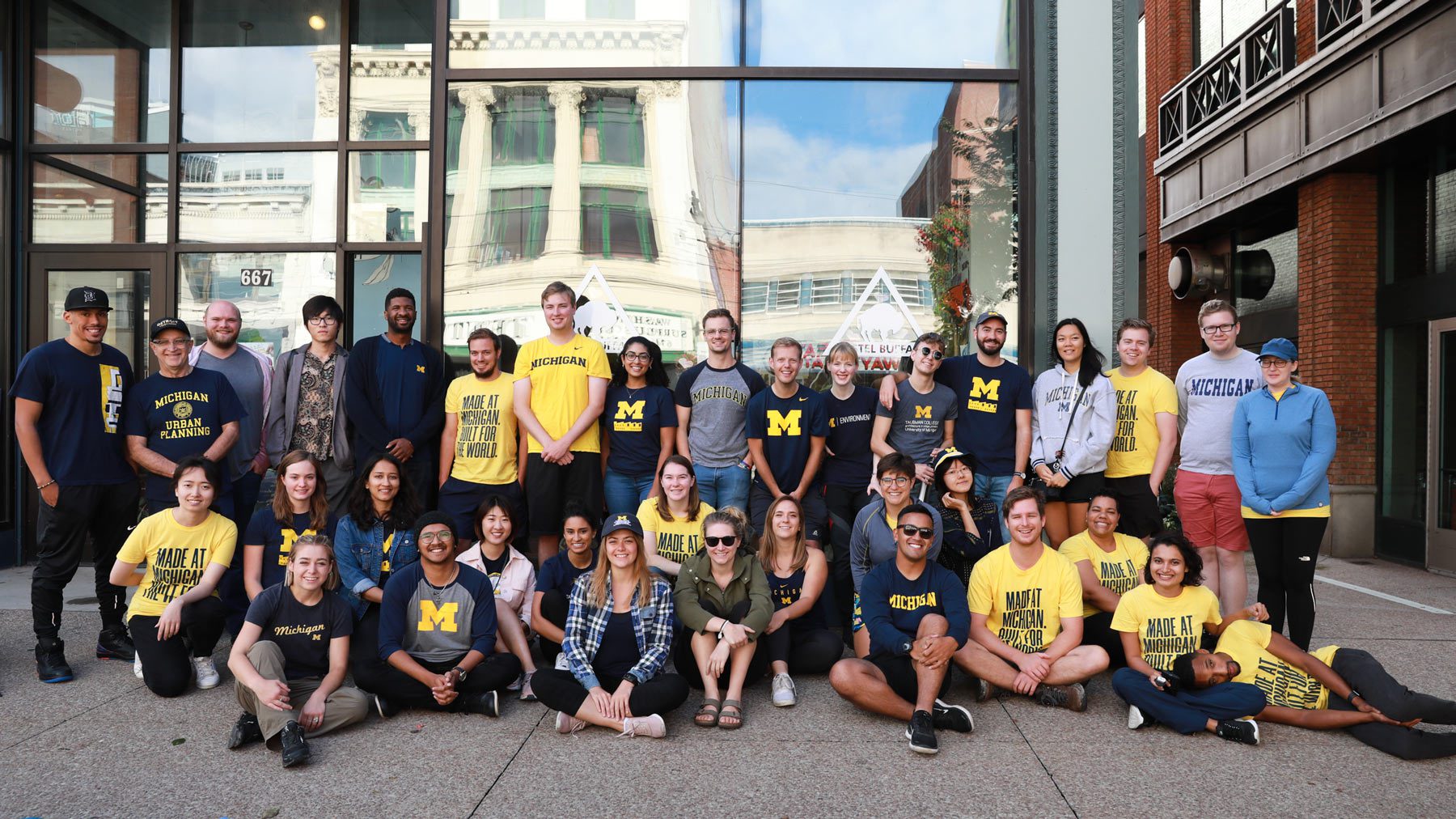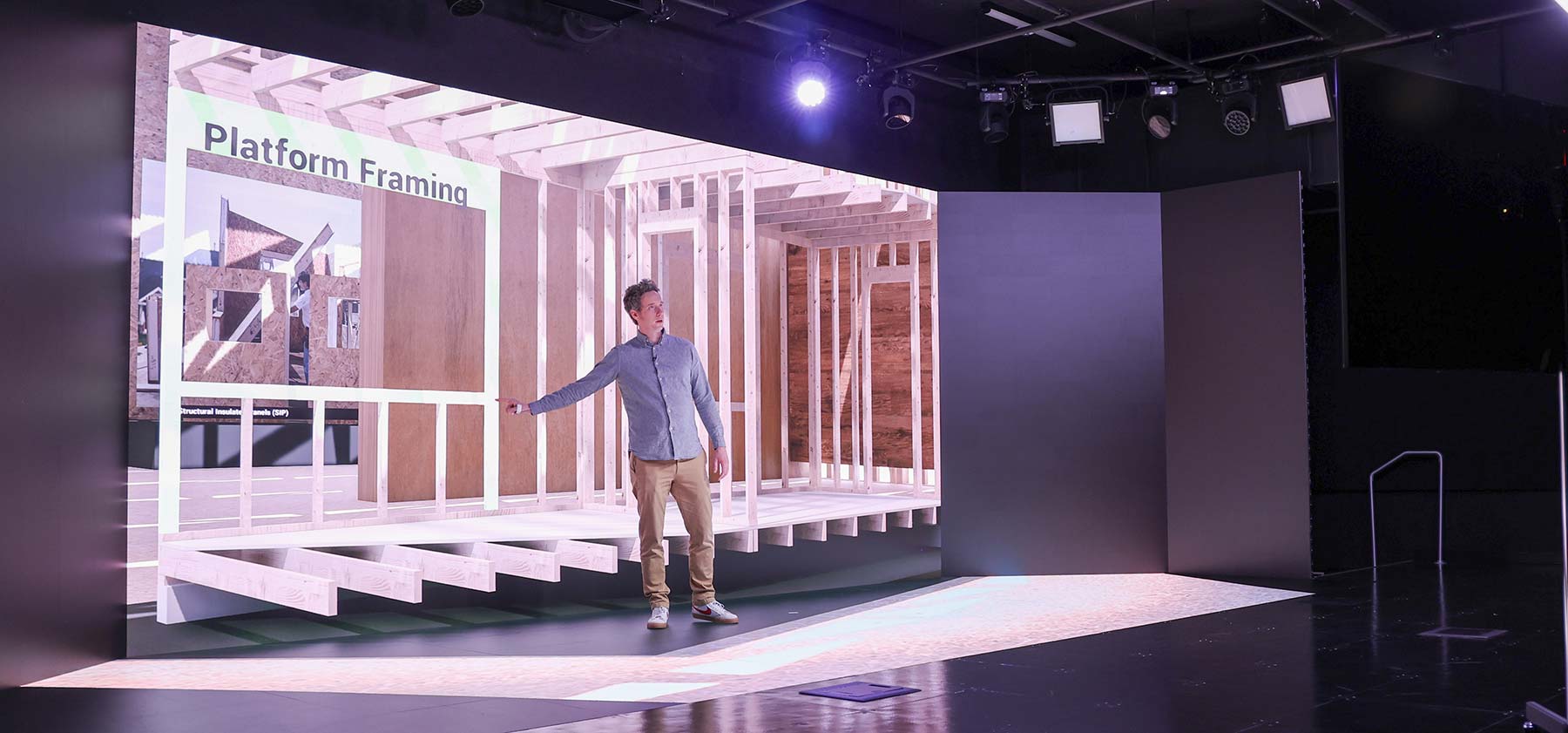Since 1989, first-year urban planning students have taken yearly trips around the country to see urban planners in action, form professional networks, and bond with their fellow students. These Expanded Horizons trips are organized by the Urban Planning Student Association. This year, the group headed to Buffalo, New York.
Anikka Van Eyl and Mrithula Shantha Thirumalai Anandanpillai, the co-leaders for this year’s trip, said they chose Buffalo for its similarities to Detroit.
“Both cities are slowly recovering from decades of deindustrialization and disinvestment, yet chose different paths to approach equity,” they said. “We aim to pick a city with a rich history of discrimination, racism, inequity, and poverty that has been further exacerbated by planners, to introduce these difficult topics early on into the planning curriculum.”
Lecturer in urban and regional planning Eric Dueweke, who has been the faculty adviser for Expanded Horizons since 2015, said that as students spend time exploring these issues on the ground together, they also gain a different perspective on each other. “You really get to know your fellow students,” Dueweke said. “That’s a huge success.”
Van Eyl and Anandanpillai echoed this. “Professional development aside, through various ‘know your cohort’ activities we learned about each other’s backgrounds and interests,” they said. The group spent one evening exploring nearby Niagara Falls and others sharing laughs over dinner.
“I loved watching the students grow closer together and share excitement over planning, something the majority of them had not yet experienced,” Van Eyl said. “To watch these students come back to campus and have such strong connections that shined in both their academic and personal lives confirmed that Expanded Horizons lived up to its reputation.”
Expanded Horizons also gives students a broadened understanding of possible career paths, Dueweke said: “We try to go to different kinds of places that planners work, so that students are exposed to the variety of ways they can apply their degree.”
During the trip to Buffalo, students had the opportunity to learn about the role of urban planners in fields such as housing, transportation, economic development, and food systems. They also volunteered at two sites, Tool Library and Grassroots Gardens, and got to experience the active grassroots activism culture in Buffalo.
“I particularly enjoyed the Buffalo trip because we spent time discussing how to revive cities that previously relied on the shipping industry and the Great Lakes,” said Sarah Jammals, an urban and regional planning student. “This is the same plight that I’ve witnessed in my hometown and in the City of Cleveland, where I spend much of my time and went to undergrad.”
Rowan Brady, an urban and regional planning student, found Buffalo’s Rust Belt history applicable to Detroit. “As another Great Lakes post-industrial city, there are a lot of similarities with Detroit. Learning how other cities are trying to bring investment back in can offer great examples and templates for Detroit,” she said.
The similarities between Detroit and Buffalo were striking to students at the University of Buffalo, too. After meeting the Expanded Horizons group during the trip, the urban planning students at the University of Buffalo are beginning their own version of the program. Their first stop? Detroit. Taubman College’s Urban Planning Student Association looks forward to hosting their new friends from the University of Buffalo in March.





